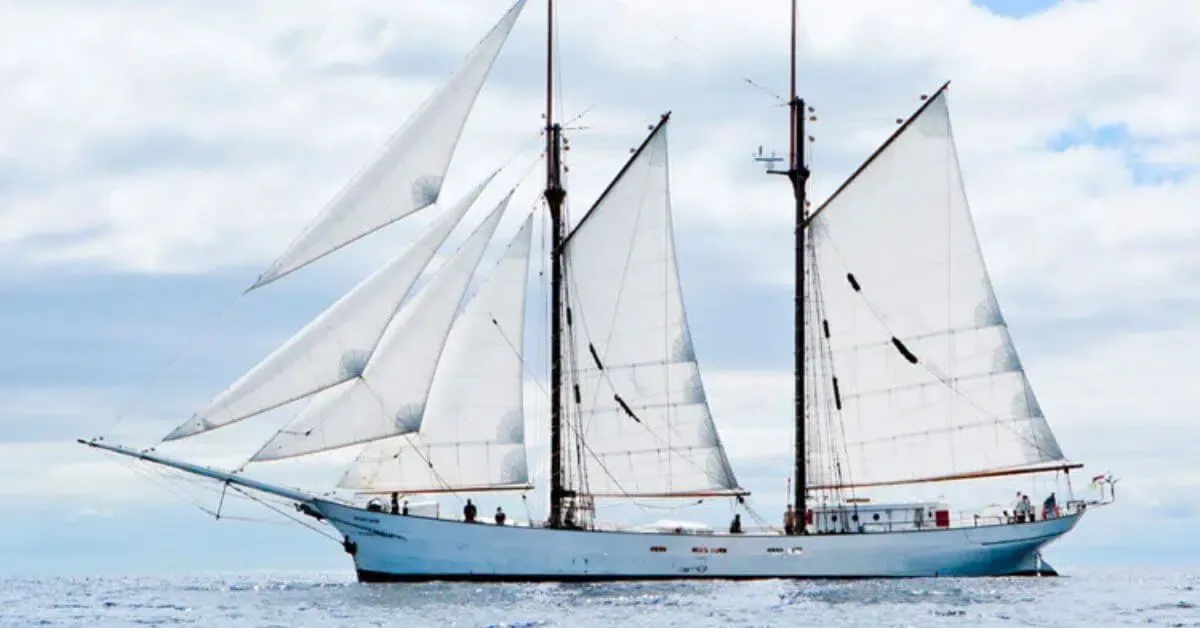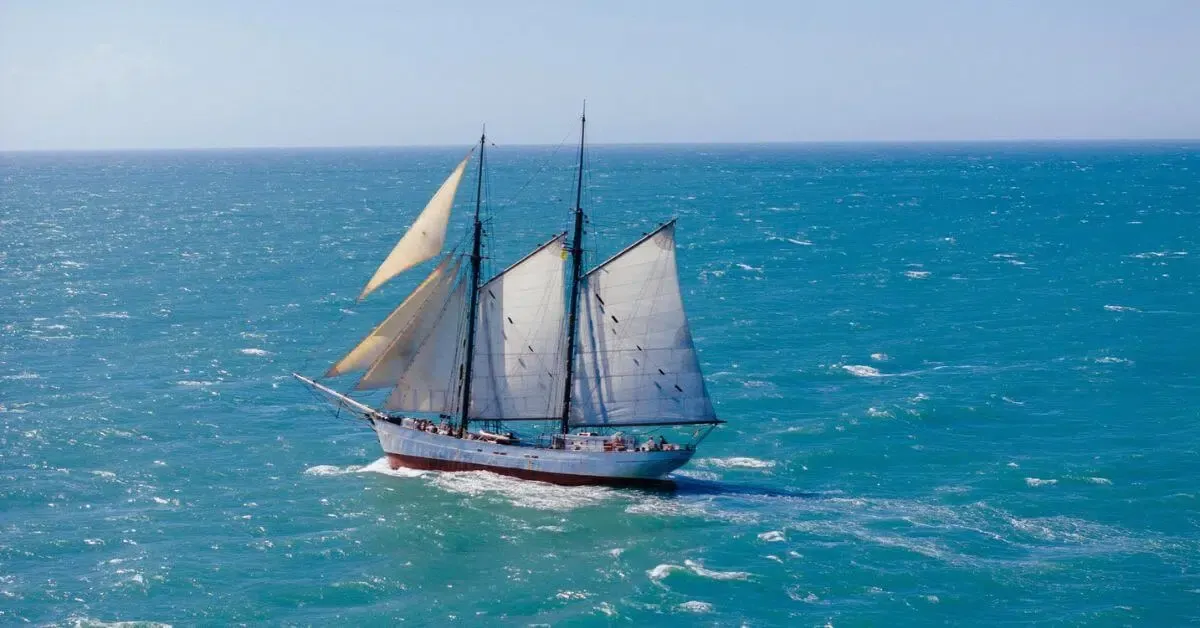Café William Embarks on Historic Voyage with the Largest Sailing Cargo Ship of the 21st Century: A Sustainable Journey of Coffee Beans from Colombia to Québec

In a monumental step towards eco-friendly maritime transport, Café William, a leading Canadian coffee company committed to sustainability, has announced the groundbreaking voyage of the largest sailing cargo ship in modern history.
The collaboration between Café William and TransOceanic Wind Transport (TOWT) is set to redefine how goods, particularly coffee, are transported across the world.
A Partnership Aiming to Revolutionise Maritime Transport
Café William has long been recognised for its forward-thinking approach to the coffee industry, not only for producing high-quality beans but for its dedication to creating a positive impact beyond the cup. By partnering with TransOceanic Wind Transport (TOWT), Café William is taking a bold step towards reducing its carbon footprint and leading the charge in sustainable transport.
TOWT is an organisation that pioneers wind-powered cargo shipping, offering a modern solution to the heavy reliance on fossil-fueled vessels that dominate today’s maritime industry.
Together, they are charting a new course in shipping, one that leverages the power of the wind to transport goods in an eco-friendly and efficient manner.
The vessel undertaking this historic journey is capable of carrying the equivalent of 50 shipping containers of green coffee beans, a massive increase from Café William's trial voyage in December 2023, which only transported a fraction of this volume.

Setting a New Benchmark for Sustainability in the Coffee Industry
Café William’s Chief Innovation and Commercial Officer, Serge Picard, sees this partnership as a groundbreaking moment for both the coffee and shipping industries. “We’re thrilled to partner with TOWT to fulfill our mission of acting beyond the cup and set a precedent for other players in the sector,” Picard explains. “It was vital for us to find an alternative method of transporting coffee, which largely depends on fossil-fuel cargo ships. Our first voyage proved that we could use sail power to bring beans to Canada, but this, much larger boat, will allow us to sustain operations and move toward zero-emission coffee.”
Café William is setting an example for other companies within the coffee industry to follow, showcasing that it is possible to balance commercial success with environmental responsibility.
The success of this larger voyage is expected to encourage other businesses to explore wind-powered alternatives and push the boundaries of what sustainable shipping can achieve.
Revolutionizing the Shipping Industry with Wind-Powered Cargo
TOWT is no stranger to tackling some of the most pressing issues of the modern era. As Guillaume Le Grand, Co-founder and CEO of TOWT, points out, “Maritime transport is closely linked to some of the world’s largest crises – geopolitical, energy, and environmental. Our goal is to revolutionize the industry with an offer that is ultimately as fast as fossil-fuel merchant ships, and we’re doing just that with the inaugural voyage of our first TOWT sailing cargo ship. We’re happy to work with businesses like Café William to not only meet customer demand for products transported in a decarbonised way but also to have a long-lasting positive impact on two of the world’s largest industries – transportation and coffee.”
This collaborative effort with Café William is a perfect illustration of how industries can evolve to meet the challenges posed by climate change while maintaining efficiency and meeting customer demands.
Empowering Indigenous Communities Through Sustainable Coffee
While the voyage of the largest sailing cargo ship in modern history is a groundbreaking feat, the story of Café William’s coffee beans begins much earlier. A significant portion of the beans on board this ship comes from the ANEI cooperative, an organisation that has been supporting Colombia’s Indigenous communities for over a decade. ANEI, which stands for Asociación de Productores Agroecológicos Indígenas del Cesar, is committed to empowering local communities by helping them rebuild their economies through sustainable agricultural practices.
The coffee beans produced by the ANEI cooperative are both organic and Fairtrade certified, ensuring that they meet the highest environmental and ethical standards. This certification guarantees that the farmers who produce these beans are paid fair wages and are supported in maintaining sustainable livelihoods. Organic certification further ensures that the coffee is grown without the use of harmful chemicals and pesticides, preserving the natural ecosystem.
As Julie Francoeur, CEO of Fairtrade Canada, eloquently puts it, “The partnership between the ANEI cooperative and Café William is a perfect example of what Fairtrade is all about – fostering thriving relationships between business and coffee-growing communities that lead to positive change for people and the planet.”
Roasting with Zero Emissions in Québec
Once the beans arrive in Québec, they will be processed at Café William’s state-of-the-art facility, home to the world’s first fully electric industrial coffee roaster. This roaster has a capacity of processing 20 million pounds of coffee annually, significantly reducing the company’s carbon footprint. Compared to traditional roasting methods, this electric roaster will prevent approximately 800 tonnes of CO2 emissions each year, further advancing Café William’s mission to reduce its environmental impact.